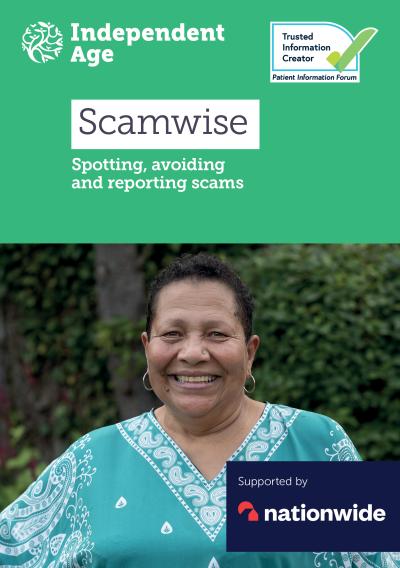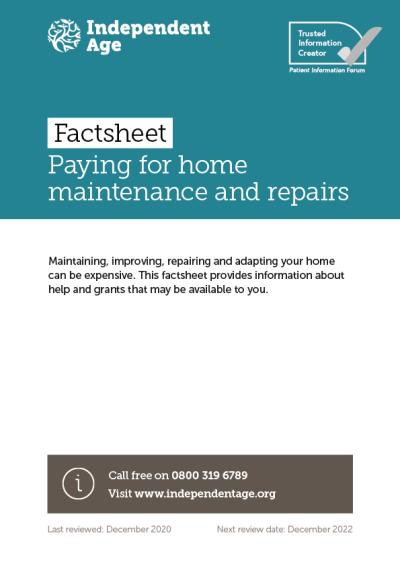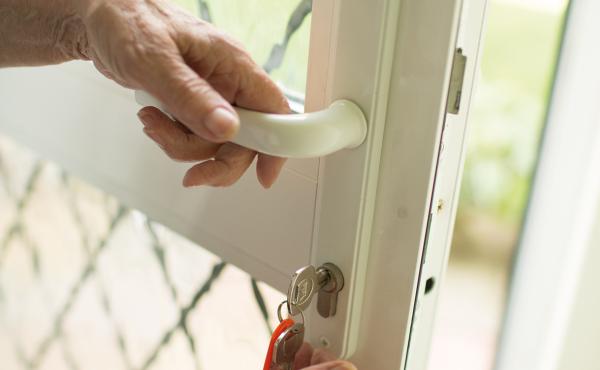Related publications

Home security

Scamwise


Whether you live in a house or a flat, protecting your doors and windows can go a long way to increasing your overall security. A surprising number of burglars don’t have to use any force – they simply get in through an open window or door.
If you're renting, your landlord may be responsible for handling some of the things discussed on this page. Check your tenancy agreement (or occupation contract in Wales) or speak with your landlord. If you're not sure, call our Helpline for further advice.
Around 70% of burglars enter through a door, so it’s important to protect your doors as a first line of defence.
Make sure you know how to close your door properly. To fully engage the locking system on most UPVC or composite doors you must lift the handle, turn the key and then remove it. Don’t leave your keys in locks or lying around – put them in a safe place where they’re hidden, but where you can find them easily in case of an emergency.
Flimsy doors and inadequate locks are a security risk. Check the door frame to make sure it’s sturdy and not rotten, and make sure the hinges are strong enough. You can fit hinge bolts or security hinges for extra security. Glass panels on doors are vulnerable so it’s worth replacing them with laminated glass, which is harder to smash.
French doors, patio doors and conservatories need to be as secure as other external doors. Install additional locks and security blocks to stop lifting or forced entry. If you’re buying new patio doors, ask for the sliding section to be on the inside and for anti-lift blocks. It’s a good idea to have multi-locking systems or mortice security bolts with removable keys at the top and bottom of both doors.
When buying new doors, make sure they meet the PAS 24 standard – this is the minimum standard of security for doors and windows in the UK.
Roughly 30% of burglars enter through a window. Modern windows with multi-point locking systems don’t usually need extra locks but they should have locking handles, except on windows that may be used as a fire exit.
There are some simple precautions you can take to protect your other windows:
When buying new windows, make sure they meet the PAS 24 standard – this is the minimum standard of security for doors and windows.
Beware of bogus callers and always ask for ID. Door-to-door callers sometimes work in pairs – one distracts you while the other carries out the burglary. Don’t answer the door if you don’t want to, and if you do, keep the security chain on.
For more information on how to deal with this type of situation and stay safe, see our guide Scamwise.
You can get practical help and advice from your local police Safer Neighbourhood Team or Crime Prevention Officer to make sure your home is secure. They may offer free security checks. Call 101 or visit police.uk (for Scotland, visit scotland.police.uk). Your local Neighbourhood Watch can also advise:
If you need to have locks fitted or changed, use a professional locksmith. You can find an accredited locksmith through the Master Locksmiths Association. They can also offer more detailed information and advice about locks.
You can find trading standards-approved businesses through Buy With Confidence, or ask your friends and neighbours for recommendations. Your local Home Improvement Agency may be able to help you, for example by fitting locks, door chains and viewers:
You can find contact details for your local police on police.co.uk if you live in England or Wales, or scotland.police.uk if you live in Scotland.
You can search for a professional locksmith through the Master Locksmiths Association.


